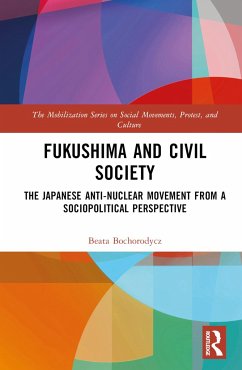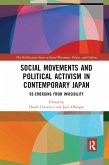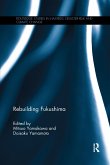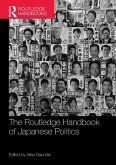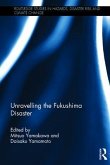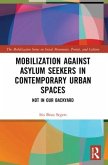This book analyzes the impact of the Fukushima disaster on civil society in Japan with particular attention to the anti-nuclear movement, focusing on its development, repertoire of action, mobilization strategies, modes of operation, and impact on the state's energy policy.
Combining social movement theory and civil society theory, the author draws on extensive fieldwork in Japan to explore the context of the sociopolitical situation in Japan up to the Fukushima accident and to offer a typological description and analysis of the anti-nuclear movement that emerged after the disaster. Through an analysis of the relationship between the power elite and the anti-nuclear movement organizations, this volume considers the influences exercised by the ruling elites on civil society and vice versa, thus assessing the effects of the anti-nuclear movement on the state policy and the society. A comprehensive account of the anti-nuclear movement in post-Fukushima Japan, embedded within a broader perspective of the movement's historical development, contemporary political structures, and opportunities, Fukushima and Civil Society will appeal to scholars of sociology and politics with an interest in social movements.
Chapter 4 of this book is freely available as a downloadable Open Access PDF at http://www.taylorfrancis.com under a Creative Commons [Attribution-Non Commercial-No Derivatives (CC-BY-NC-ND)] 4.0 license.
Combining social movement theory and civil society theory, the author draws on extensive fieldwork in Japan to explore the context of the sociopolitical situation in Japan up to the Fukushima accident and to offer a typological description and analysis of the anti-nuclear movement that emerged after the disaster. Through an analysis of the relationship between the power elite and the anti-nuclear movement organizations, this volume considers the influences exercised by the ruling elites on civil society and vice versa, thus assessing the effects of the anti-nuclear movement on the state policy and the society. A comprehensive account of the anti-nuclear movement in post-Fukushima Japan, embedded within a broader perspective of the movement's historical development, contemporary political structures, and opportunities, Fukushima and Civil Society will appeal to scholars of sociology and politics with an interest in social movements.
Chapter 4 of this book is freely available as a downloadable Open Access PDF at http://www.taylorfrancis.com under a Creative Commons [Attribution-Non Commercial-No Derivatives (CC-BY-NC-ND)] 4.0 license.

